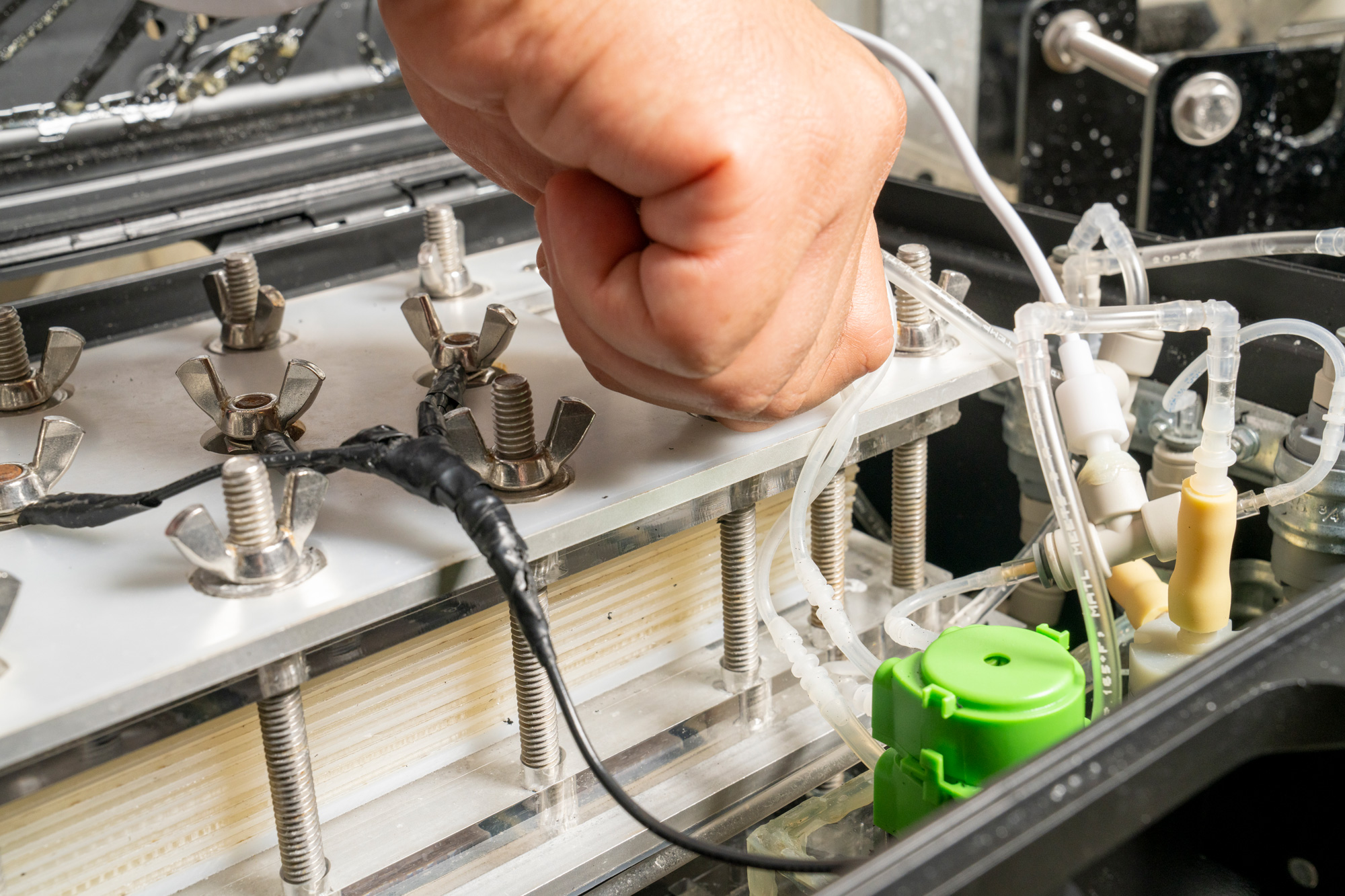
Water scarcity is one of the world's biggest challenges. The World Health Organization (WHO) estimates that one in three people globally do not have easy access to clean water. Desalinating ocean water could help. But the currently-available devices are too energy-intensive and expensive to deploy on a large scale. Now, Massachusetts Institute of Technology (MIT) researchers have developed a portable desalination machine that is both affordable and sustainable.
Unlike conventional portable desalination units that need replaceable filters, the MIT machine uses electricity to remove the salt and other particles from the ocean water. More importantly, the suitcase-sized device needs less power to operate than a cell phone charger. It can also be powered by a small, portable solar panel that costs less than $50. The lack of filters and the low electricity requirements makes the machine extremely cheap to operate.

The researchers assert that their invention can deliver drinking water exceeding WHO quality standards with a push of a button. A smartphone app allows the user to control the unit wirelessly and receive real-time data on power consumption and water salinity. It also sends out a notification when the water is drinkable.
“Even a kindergarten student can carry and use the desalination unit,” says Junghyo Yoon, co-author of the study published in the journal Environmental Science and Technology on April 14, 2022. “Ease of use was one of the main motivations of creating the device.”
The MIT team is now exploring ways to bring their portable machine to market. They believe it will benefit residents of small islands or those fleeing natural disasters. It could also be very useful for sailors on cargo ships and soldiers on long-term military operations.
Resources: news.mit.edu
